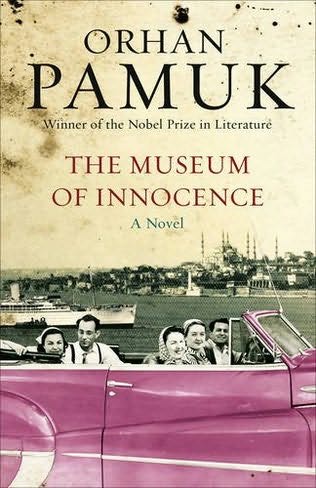I have to preface my words with an admission. I am a huge David Grossman fan. I love his writing style, I love his choice of material, his themes, the flow of his stories. I love the fact that his literary journey in many ways covers the history of the modern state of Israel. I love that I can read the arc of his work and see into him as an Israeli and as a Jew. I love that I often see flickers of myself in his prose. And I love the tenderness that always floats beneath the surface of his work. I will also confess that I read Grossman in English, although if I applied myself I could probably manage the Hebrew … on some level I’m worried that I would miss the music if I laboured through the original and that seems too tragic to bear.
I knew that Grossman was working on this book because I had the great pleasure of spending a few hours with the glorious Deborah Harris and Grossman called her while we were chatting. I won’t lie – it was one of the highlights of my life 🙂 So I was waiting with anticipation for this book which Harris described as his magnum opus – literally the most epic book he had ever written.
Given what I have shared about my adoration of Grossman’s work, I’ll start with what I thought were the stellar parts of the book. Firstly, the back story which is about Eva Panic (pronounced Punitsch). Apparently Grossman and Panic were close friends for many years and this book pays homage to her story. The story itself is devastating and I highly recommend that any readers of this book also delve into Panic’s life … I started with this article in Ha’Aretz which I thought provided a good foundation and this documentary on YouTube (you’ll have to search for all the parts as it’s broken up into segments). What struck me about Panic’s story is that it sheds light on a Holocaust experience which I think is often forgotten or perhaps neglected – that of rural villagers and communist supporters. While Panic’s own parents were taken to Auschwitz and killed there, she and her husband saved 1500 people from the Nazis. The choice that Panic faces and the repercussions of that choice are unimaginable to me; but knowing this background helped me to empathise somewhat with her as she is depicted in Grossman’s book.
Two things that Grossman always does well are characterisation of people and depiction of place. This book is no exception. Grossman paints his characters so delicately that they appear to be real. They are immeasurably flawed, painfully broken and simultaneously rich and varied. They celebrate love and wallow in loss with ferocious confidence. They are selfish and self-obsessed to the extreme and at times this is painful to read and witness. But it is real. They all need therapy – much like most people I know. Grossman’s Eva (aka Vera in the novel) is exactly the kind of person I would have liked to know. She reeks of history, languages mashed together in her heavy accent (and yes, I could sense the accent even through the translation). She is strong and coarse and bold. She is a fighter, stubborn and resistant but also passionate and while abrasive, she warms gently at startling moments. Reading about Vera I was reminded of Meir Shalev’s beautiful My Russian Grandmother and Her American Vacuum Cleaner which also took place in a Kibbutz setting and similarly featured a grandmother, although of different extraction. In truth, Vera reminded me somewhat of my maternal grandmother who was both cold and warm in a way that I think only a survivor of some tragedy can be. I leaned in to Vera but I was simultaneously repulsed by her callousness. She is clearly the spine of this book and for me it was her voice that carried the narrative – both her spoken voice and the silences behind which she hid much truth.
There were some interesting moments in this book – the scene at the airport, at Vera’s birthday party, the storm on the island. But while these stand out as particularly strong, there was much about this book that seemed to be lacking. I’m not sure whether it was the weight of the story that overburdened the narrative or whether there was something else at play. What I do know is that this isn’t Grossman’s best book. It’s good. It’s interesting. And the story is certainly worth telling. But it’s not … I don’t have the word exactly. It’s like it’s trying to be something greater than it is… There are moments when Vera is lost in the story and her telling of it and I feel as though Grossman himself was lost in the same thing. As though holding Eva was somehow too great a task – and now that I’ve watched an interview with Eva I can see that this is true. She is larger than life, despite her small stature. She is unyielding and overflowing and glorious – impossible to capture and perhaps it is this that undoes Grossman’s novel.
Undoubtedly, Grossman’s steady brilliance sets a very high standard and it’s fair to say that this book is definitely worth reading because Eva/Vera’s voice should never be forgotten and because memory so easily melts and fades and because Grossman is just such a force in the world of literature. So read it. And read beyond it.


















